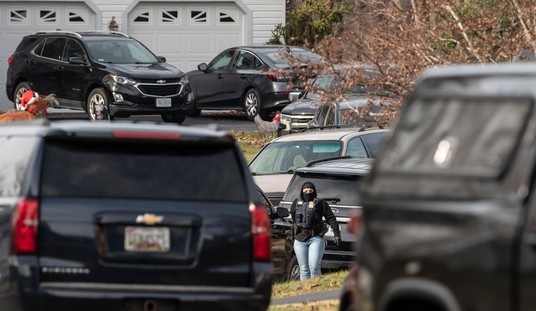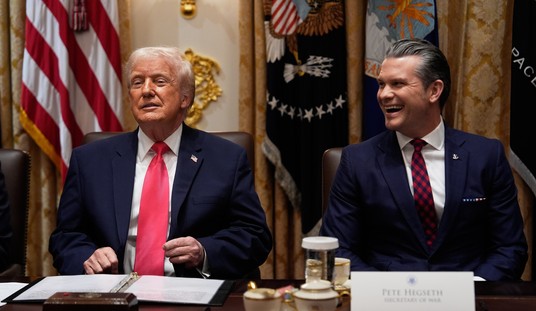“At times Obama’s fear of his top commanders seems to have bordered on paranoia,” Arthur Herman writes in “Two Leaders, Judged,” his review of Robert Gates’ recent book, Duty: Memoirs of a Secretary of War. It’s likely behind the Commentary subscriber paywall at the moment, but here’s the conclusion:
As Gates relates, Bush respected and felt at ease with his uniformed commanders, even when he was questioning their views or overruling them. Obama, by contrast, never trusted or respected Petraeus, or Navy chief Mike Mullen, or General Stanley McChrystal, the universally respected expert on counterterrorist operations who said an extended CT strategy would never work in Afghanistan, and that the surge was the way to go. At times Obama’s fear of his top commanders seems to have bordered on paranoia. Even when he did finally agree to the surge strategy and appointed McChrystal to lead it, he insisted on trimming the number of troops to be sent—and kept looking for any excuse to back out.
So, when Rolling Stone ran its dismaying article on McChrystal, quoting his staff as saying Obama was a disappointment and mocking Biden, Obama was inclined to use it as an excuse to scrap the surge itself, which had been approved only six months earlier. “[McChrystal] doesn’t seem to be making progress,” Gates quotes Obama as grumbling. “Maybe his strategy is not really working.”
Gates urged the president not to fire the man he had so recently given the job of turning the tide in Afghanistan. “I believe if we lose McChrystal, we lose the war,” he said, and the damage to relations with Afghan president Karzai, with whom McChrystal had developed a relationship of trust, would be “irrevocable.”
But in Obama’s mind, he and his administration had been dissed, and whoever did it had to go, regardless of the effect on the war. And although the surge did work under McChrystal’s successor, David Petraeus, we still await an answer to the question of whether the delay in first approving it and then changing commanders, and the loss of the one person who could deal with Karzai, damaged the American cause “irrevocably.”
Still, the sharpest contrast between Bush and Obama for Gates was the latter’s lack of engagement in a conflict that was both vital to American interests and had cost thousands of young Americans their lives or limbs. He writes that Bush “was passionate about the war in Iraq; I would see his eyes well up with tears” at Medal of Honor ceremonies. “When soldiers put their lives on the line,” Gates writes, “they need to know that the commander in chief who sent them in harm’s way believes in their mission.”
Yet Obama never did, then or later. As his subsequent actions both in Iraq and Afghanistan have shown, his chief interest was and is to put these conflicts behind him, regardless of future consequences—or even whether the thousands of families who lost loved ones on those battlefields will be left with the sense that those loved ones died for nothing.
Let’s face it; Mr. Obama, our Bizarro World Clausewitz, is much more interested in prosecuting the War at Home, than the one abroad.

Related: In his review above, Herman notes, “in Obama’s mind, he and his administration had been dissed, and whoever did it had to go,” hence McChrystal’s ouster. In the Wall Street Journal, Bret Stephens writes, “I’ve never liked the word diss—not as a verb, much less as a noun. But watching the Obama administration get the diss treatment the world over, week-in, week-out, I’m beginning to see its uses,” particularly with so many world leaders “treating Obama like another failed American leader,” Stephens adds, before concluding, “I was wrong about diss. It’s a fine word. It means diss-respect. And connotes diss-may. And diss-honor. And diss-aster.”










Join the conversation as a VIP Member